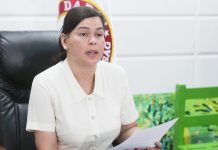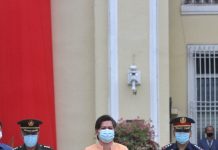Journalism remains a dangerous profession. Most media practitioners stated this not only because many cases of journalist killings are still unsolved. But, it is also because the sense of impunity on media attacks haunts the lives of journalists up to these days.
A total of 141 journalists in the Philippines have been killed in line of duty since 1986: 17 killed during Corazon Aquino’s administration, 15 during the term of Fidel V. Ramos, five under Joseph Estrada’s time, 103 in Gloria Macapagal-Arroyo’s term, and one so far in the current administration of Benigno Aquino III.
The National Union of Journalists of the Philippines (NUJP) notes that media workers face dangerous working conditions “where truth-tellers in our society have become subjects of liquidations and attacks by powerful entities who have been subjects of criticism and adverse reportage.”
The Davao region has also experienced media repression. For one, a broadcaster of RMN-DXDC Davao, Lex Adonis, was jailed in 2008 as a result of a libel case filed by then congressman of the first district, Prospero Nograles. Roel Sembrano, a broadcaster in Compostela Valley was physically attacked inside his radio booth by a politician he had criticized on air in 2008. Elgin Damasco, RMN-DXDC news director, received death threats for his reportage of human rights abuses by Philippine military authorities in Paquibato district, Davao City, including the abduction, rape and killing of a rebel leader’s daughter, Rebelyn Pitao.
The killings of Dennis Cuesta, Jessie Camangyan and Nestor Bedolido were other cases of attacks on media persons. Cuesta, RMN program director in General Santos City, was killed in 2008. Radioman Camangyan in Davao Oriental, who denounced illegal logging operations there, was murdered last June 14 by the bodyguard of a politician. Bedolido, a tabloid reporter and known critic of a political family in Digos City, was likewise murdered last June 19.
Because of the support and unity of media workers, Adonis was subsequently released from the Davao Penal Colony (Dapecol) while the Cuesta murder case is already in court.
Dodong Solis’ termination
A radio anchorman and station manager of RMN-DXDC Davao for 12 years, Mario Maximo “Dodong” Solis, was recently terminated by management without pay.
Preparing to file a case of illegal dismissal against management, Solis claims that it was because of his “progressive mind” which was reflected in his brand of programming that the company kicked him out.
This brand of programming, according to the NUJP, “is biased in favor of the underprivileged and neglected sectors who are given the opportunity to have their condition to be heard through the airwaves, as well as the privilege to be provided with information helpful in making them understand the truth about their situation. It is a brand of broadcast programming that endears the radio station to the common folk, so to speak, and allow it to keep its top rating.”
Solis explained that all RMN stations nationwide were allowed to do “generic programming,” wherein each cluster provides the contents. “They wanted me to change the contents,” he said, adding that management wanted to bring in a program being used by the RMN station outside Davao which was not even able to top the rating of a competitor.
NUJP said to terminate Solis is “highly suspect” because “this blow came even as RMN Davao topped the latest AC Nielsen survey.”
In this survey, the group noted, “RMN-DXDC Davao garnered a high .75 rating or equivalent to being number one among 40 radio stations in Davao City, the results owing to its “progressive” brand of programming that draws attention to the lives and simple joys of the common folk, their plight and their struggles.
The same brand of programming has gained the station a consistent number one popularity in Davao City and the whole of Southern Mindanao for the past several years under Solis’s watch.
His former co-employees face a threat to be the next targets for termination. In order to uphold their economic rights, they organized themselves into a union which initiated a protest rally to show indignation and to call for justice for Solis last September 9.
Aside from Solis, his colleagues, Jessie Casalda and Elgin Damasco were forced to resign last September 16. Dennis Lazo and Arthur Borneo, anchorpersons of Bombo Radyo Davao were already removed from work.
“A condition where economic rights of media workers are threatened only serves to undermine a free press even more,” said the NUJP.
Media safety training
In response to the existing impunity on the killing of journalists, the NUJP gave a risk awareness and media safety training course to Davao media practitioners last September 11-12.
This was led by Rowena Paraan, treasurer of the NUJP national directorate and safety trainer for Southeast Asia, International News Safety Institute (INSI).
Paraan said the training taught journalists their best defense against any risk, which primarily is the good practice of journalism, and basic first aid methods and safety measures in cases of danger and captivity.
By the end of the training, trainor JB Deveza of the NUJP Mindanao Safety office told the participants, “We are human beings first before we are journalists.” This will always be a reminder to media practitioners that in times of danger, which is inevitable in this profession, they must save their lives and protect their colleagues.
The NUJP calls on all sectors of society “to rally behind the cause of working journalists because only a free press can be the people’s defense against deception, intimidation, and subjugation from forces inimical to people’s welfare.”
Journalism is a profession driven by passion, a veteran journalist said. Despite media repressions and poor economic conditions, journalists continue to be strong and proud to be of service to the Filipino people. Lorie Ann A. Cascaro






